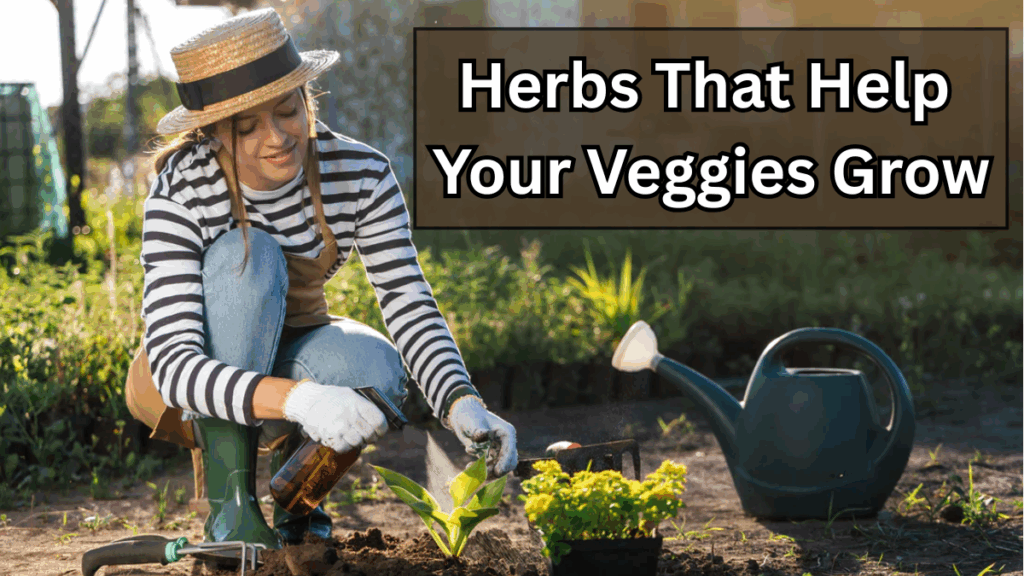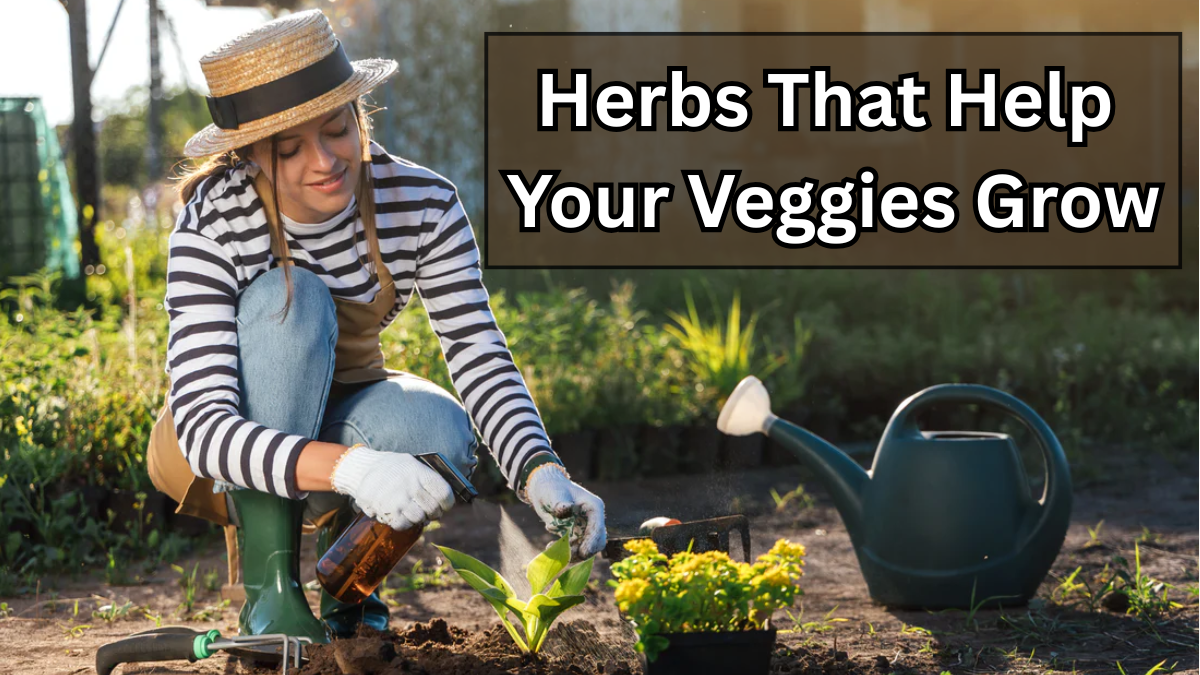If you’ve ever wondered how to naturally boost your vegetable garden’s health and yield, the secret might just be growing the right herbs alongside your veggies. Certain herbs that help vegetables thrive can improve flavor, repel pests, and even enhance growth. This guide will show you which companion herbs work best in your vegetable garden.

Why Companion Herbs Matter in Your Vegetable Garden
Using companion herbs is more than just a gardening trend—it’s a smart, natural way to improve plant health. Here’s why you should consider them:
-
Pest control: Some herbs naturally repel insects, protecting your vegetables without chemicals
-
Improved growth: Certain herbs release chemicals from their roots or leaves that enhance neighboring plants
-
Flavor boost: Some herbs can subtly enhance the taste of nearby vegetables
-
Pollinator attraction: Flowering herbs can bring in bees and other pollinators, which helps fruit and vegetable production
Top Beneficial Herbs to Grow with Vegetables
Here’s a breakdown of herbs that help vegetables grow better, their benefits, and ideal vegetable companions:
| Herb | Benefits | Best Companion Vegetables |
|---|---|---|
| Basil | Repels mosquitoes, improves flavor of crops | Tomatoes, peppers, oregano |
| Chives | Deters aphids and carrot flies | Carrots, tomatoes, roses |
| Dill | Attracts beneficial insects like ladybugs | Cabbage, cucumbers, onions |
| Mint | Repels ants and cabbage moths | Cabbage, tomatoes (grow in pots to control spreading) |
| Thyme | Keeps cabbage worms away | Cabbage, broccoli, Brussels sprouts |
| Parsley | Attracts predatory insects | Tomatoes, asparagus, corn |
| Cilantro | Repels harmful insects, attracts pollinators | Spinach, tomatoes, peppers |
Tips for Planting Companion Herbs in Your Garden
To get the most from your beneficial herbs, follow these simple planting strategies:
-
Plan your layout: Place herbs next to vegetables they complement
-
Use containers wisely: For aggressive herbs like mint, use pots to prevent them from overtaking your vegetable beds
-
Rotate annually: Change the herb-vegetable pairings each season to prevent soil-borne diseases
-
Harvest regularly: Pruning herbs encourages growth and prevents them from overshadowing vegetables
Combining Herbs and Vegetables for Maximum Yield
When you create a garden with companion herbs, consider combinations that provide synergy:
-
Tomatoes + Basil + Chives: Basil boosts tomato flavor while chives deter pests
-
Cabbage + Dill + Thyme: Dill attracts predatory insects and thyme repels cabbage worms
-
Carrots + Parsley + Chives: Parsley attracts beneficial insects while chives keep carrot flies away
This approach creates a mutually beneficial ecosystem where each plant contributes to the overall health of your garden.
FAQs About Herbs That Help Vegetables
Q1: Can I plant any herb next to any vegetable?
Not all herbs are compatible with all vegetables. Researching companion herbs is important to avoid negative interactions, like strong herbs inhibiting vegetable growth
Q2: How many herbs should I plant per vegetable bed?
Start small—2 to 3 different beneficial herbs per bed is sufficient. Overcrowding can reduce air circulation and encourage disease
Q3: Do herbs need special care when planted with vegetables?
Most beneficial herbs thrive in similar conditions as vegetables. Regular watering, sunlight, and occasional pruning are usually enough
Q4: Can herbs really improve vegetable flavor?
Yes! Herbs like basil, chives, and dill can subtly enhance the taste of nearby crops while also providing pest protection
Click here to learn more
